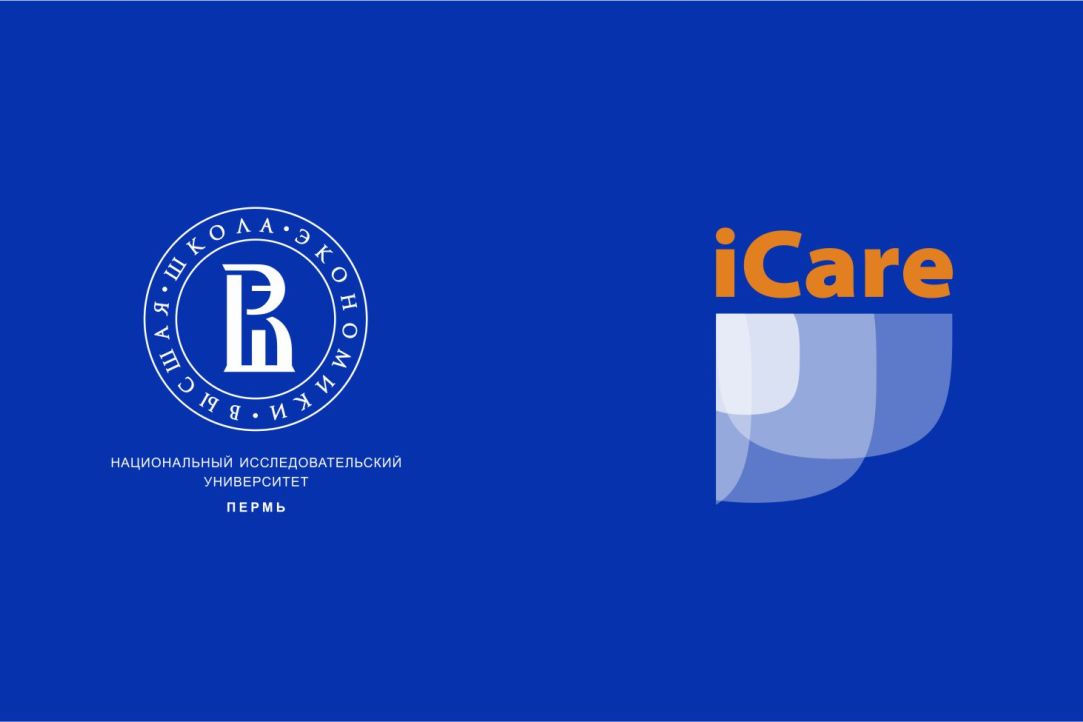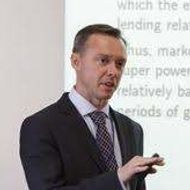2020 iCare Participants Discuss the Economic Effects of the Pandemic, the Accessibility of Higher Education in Russia, and More

On September 21, the VIII International Conference on Applied Research in Economics (iCare) was held online, bringing together more than 100 researchers from 19 countries. Organizers, speakers, teachers, and students shared their impressions of the event and talked about the opportunities that the conference opens up for them.
This year’s conference programme included 24 presentations that were given by Russian and foreign researchers. The papers were organized into 6 sessions:
Poverty, Inequality, Exclusion
Consumer Behaviour
Shocks, Uncertainty and the Economy
Education and Social Interaction
Inflation Expectations
Environment and the Economy
Presentations addressed population expectations, macroeconomic shocks, the reaction of stock markets throughout the COVID-19 pandemic, consumer behavior, education and social interaction, the impact of the environment on the economy, and more.
Between sessions, conference participants could discuss the presentations and future research projects in virtual rooms.
Keynote Lecture: Lessons from the Financial Crisis
The conference’s keynote speaker was Michael Koetter, Professor of Financial Economics at the University of Magdeburg and Head of the Department of Financial Market Research at the Halle Institute for Economic Research (IWH). In his lecture, he described how the 2008 crisis affected the global economy (the banking industry and real companies) and politics, and how these lessons can help us today.
Michael Koetter cited the following key materials in his lecture:
Lending Effects of the ECB’s Asset Purchases
Online Appendix to: Lending Effects of the ECB’s Asset Purchases
May the force be with you: Do political consolidation barriers depress bank profitability?
Keynote Speaker Michael Koetter

In my view, the financial system is key to overcoming the economic downturn due to the ongoing Covid-19 crisis. It is the financial system that should revive entrepreneurial activity and stimulate the growth of wealth and well-being. Failure to efficiently allocate financial resources can have long-term negative consequences. It was a tremendous honor and an enjoyable opportunity for me to share these thoughts at a conference that brought together so many interesting researchers, especially in the areas of growth, resource allocation, and economic dynamics—all from the point of view of different disciplines.
The organizers of the VIII International Conference on Applied Research in Economics (iCare) summed up the results of the speeches and discussions. Despite the online format, the conference retained both its personal atmosphere and high level of discourse.
Programme Committee Chairman, Professor Dmitry Vinogradov

I would rate the quality of the reports presented at iCare as high, but we knew this even at the stage of selecting papers for the conference. Dennis Coates (Chair of the ‘Education and Social Interaction’ session) said that he enjoyed the work presented. Paola Valbonesi chaired the ‘Environment and the Economy’ session. Though this session seemed quite popular during the stage of selecting papers, it was attended by only a small number of participants. But this happens at conferences—there is a time lag between the preparation of a paper and the conference, and during that time one’s research interests can change drastically. This is what we saw yesterday. The keynote lecture touched on the COVID-19 pandemic, and in the macroeconomic shocks session, there was a presentation on the impact of the coronavirus on pharmaceutical stocks. Additionally, in the ‘Inflation Expectations’ session, there were two presentations on how the pandemic affects people's perceptions of economic uncertainty and actions taken by the government to overcome the crisis. This did not make the relationship between the environment and the economy any less important. It is for this reason that we do not hold conferences on a specific them, but rather strive to reflect a wide range of topics.
While participating in iCare online, I wished we could have had more live communication and been able to discuss the presentations during coffee breaks and our traditional informal dinner after the conference. But we tried to adopt a lot of approaches from the ‘Research Neighbours’ conference that was held with great success in the spring. These approaches included having three simultaneous sessions, appointing session chairs, enlisting technical moderators to assist the chairs, and using an online registration system. We had a very difficult task—the speakers were going to be participating from all over the world, from Brazil to Taiwan, and we had to find a time when, relatively speaking, it was no longer night in Chile and it was still evening in Australia. In order to avoid online fatigue, the time of the lectures had to be shortened, and this led to the fact that the breaks were almost entirely spent on discussing the lectures. On the one hand, this is good, because the discussions took place, and for this, many thanks to the session chairs. On the other hand, it underlines how important personal communication is for academic dialogue. Hopefully, next year iCare will be in-person.
Senior Research Fellow, International Laboratory for Institutional Analysis of Economic Reforms
I have been participating in iCare since 2015. The Perm conference is an excellent platform for discussing research papers, many of which later turn into publications in prestigious journals. For example, last year my colleagues Olga Kotomina and Alexandra Sazhina presented a report on parental involvement, and now, based on the results of our research, we have published an article in a well-known international educational journal.
Unfortunately, due to the COVID-19 pandemic, this year the conference was held online, so it was not possible to personally communicate with colleagues during coffee breaks and discuss comments in more detail. Nevertheless, the online conference was organized extremely well, without technical glitches and with excellent timing. However, I hope that next year I will be able to see my colleagues in person.
The presentations at the conference were of high quality. For the eighth time, iCare proves itself to be a forum where you can be confident in the significance and the quality of the research being presented. I was especially impressed by the Michael Koetter’s very interesting and useful keynote lecture concerning the banking sector, the real sector of the economy, and politics. For example, I have done studies related to the regional specifics of the economy, and I was interested in learning trends at the macroeconomic level. In the future, I’ll be able to use this information in preparing lectures and applying factual data.
Thanks to the organizers for an excellently organized conference! Everything was carefully thought out, and opportunities for communication and discussion were provided. Although, of course, face-to-face communication at conferences is preferable for me.
Despite these difficult times, this year’s iCare was a success and retained its intimate atmosphere while presenting significant research papers on a wide range of issues in applied economics. Quite a lot of reports were devoted to the problems of instability and forecasts of the economic situation. Some of the authors analyzed the impact of the pandemic on the stock markets. I was especially interested in works on education topics, in particular, the accessibility of higher education in the Russian Federation and social relationships, such as the impact of co-learning effects on student performance. Good luck to all authors in publishing their research!
This is my third time attending iCare. This year, I presented a joint study with Elena Shadrina and Dmitry Vinogradov dedicated to the analysis and assessment of factors affecting the conduct of environmentally friendly procurement by Russian government customers. Of the presentations I managed to attend, Michael Koetter’s lecture stood out most. For myself, I noted the structure of the presentation and his ability to talk about complex things in simple words.
Of the advantages of the online format, I would note that you can quickly switch between sessions and presentations, which allows more speakers to present, and it is easier to keep the timing of speeches. But I really miss when the conference participants could come to Perm, and it was possible to interact personally with everyone, discussing research and possible joint projects.
In my opinion, it is imperative for young researchers to present their work at conferences—this way you can get valuable feedback from experts on the topic, get acquainted with leading scholars, and exchange ideas.
Junior Research Fellow, International Laboratory of Intangible-driven Economy (HSE – St. Petersburg)
The most memorable presentation for me was Ernest Biktimirov, Tatyana Sokolyk, and Anteneh Ayanso’s presentation on news sentiment analysis as a determinant of real estate prices. In some of our work, my colleagues and I also perform sentiment analysis of various texts, so it was informative to see an example of the application of this method. I like the online conference format! You don't have to worry about logistic issues and can easily move between different sections.
Tatiana V. Bukina
Associate Professor, School of Economics and Finance
Dmitri Vinogradov
Professor, School of Economics and Finance
Dmitry Kashin
Head, HSE Perm International Office
Mariya Molodchik
Professor, School of Economics and Finance
Sofia Paklina
Junior Research Fellow, International Laboratory of Intangible-driven Economy
See also:
Economists Suggest Using Media's Attention to Bitcoin to Predict its Returns
Researchers at the HSE Faculty of Economic Sciences have studied the relationship between the changes in the bitcoin prices and the media attention to this cryptocurrency. The researchers examined the mentions of bitcoin in the media between 2017 and 2021 and built a mathematical model that revealed the strong relationship between media attention and bitcoin prices. The study was published in the Applied Stochastic Models in Business and Industry journal.
HSE Economists Develop a Model for Sustainable Solar Geoengineering Agreements
Researchers at HSE University and George Mason University have investigated the sustainability of prospective international agreements on solar geoengineering. The authors have proposed a scheme in which payments flow from affluent nations to less wealthy ones; an arrangement which sets their proposal apart from traditional systems. The proposed model aims to dissuade more vulnerable countries from excessive use of the prevalent geoengineering method by providing compensation for the potential damage they may incur and supporting their adaptation to climate change. The paper has been published in Environmental and Resource Economics.
Crypto Investors Receive Downside Risk Premiums
Victoria Dobrynskaya, Assistant Professor at the HSE Faculty of Economic Sciences, has analysed the price dynamics of 2,000 cryptocurrencies from 2014 to 2021 and investigated the association between downside risks and average returns in the cryptocurrency market. As it turns out, cryptocurrencies exhibiting a greater risk tend to yield higher average returns. The study has been published in International Review of Financial Analysis.
The ICEF-CInSt Conference as a Platform for International Research Networking
On November 24–25, 2023, the 12th ICEF-CInSt International Finance Conference took place in Moscow. Researchers from Russia, China, Hong Kong, Taiwan, the USA, Canada, Italy, and the United Kingdom contributed as speakers and discussants. The organisers and participants of the conference shared their impressions of the event with the HSE News Service.
‘Studying Is an Invaluable Opportunity to Learn from Experts and Explore Diverse Perspectives’
Mateo Rojas Samper, from Colombia, is a student of thePolitics. Economics. Philosophy master’s programme at the HSE University Faculty of Social Sciences. Matteo spoke to the HSE News Service about the importance of engaging in both theory and practice in his studies at HSE University, as well as his participation in the Model United Nations and the Russia–Latin America International Parliamentary Conference.
Results of the Contest to Predict Nobel Prize Winners in Economics
Claudia Goldin's award was predicted by five people. They are Olga Peresypkina (RSVPU), Anastasia Sirotina (first-year student of the Bachelor's in Applied Mathematics and Information Science at HSE University), Mikhail Shabanov (Global Vision Asset Management LLC), Tatul Hayrapetyan (PhD student at the Stanford Graduate School of Business), and Hemant Kumar (Ettumanoorappan College, Kerala, India).
Financial Sector Risks Can Hinder Transition to Green Economy
According to HSE and MGIMO economists, increased financial sector risks in developed countries may be associated with a higher carbon footprint in banks' loan portfolios. This is likely due to the fact that in response to an unstable economic situation, banks tend to issue more loans to companies that have a detrimental impact on the environment. Although this might yield short-term profits for the banks, such trends hinder humanity's progress towards achieving a green economy. The paper has been published in Environmental Science and Pollution Research.
Winner of 2023 Nobel Prize in Economics Announced
The Royal Swedish Academy of Sciences has awarded the Sveriges Riksbank Prize in Economic Sciences in Memory of Alfred Nobel 2023 to Claudia Goldin (Harvard University, Cambridge, MA, USA), ‘for having advanced our understanding of women’s labour market outcomes.’ According to the Nobel committee, Professor Goldin has uncovered key factors that determine gender differences in the labour market.
Millennials Are Three Times Ahead of Zoomers in the Monetised Creator Economy. Even Boomers Outperform Them. Okay Then…
A group of specialists from the HSE Institute for Cultural Studies, Vitaly Kurennoy, Alexander Suvalko and Maria Figura, have determined two main trends that are actively shaping the image of the creative economy and culture in 2021-2023: the creator economy and the maker economy.
Teaching Masters' Students and Conducting Lectures in English Boost Academic Productivity
HSE researchers have analysed teaching load data at the HSE campus in St Petersburg to investigate the potential impact of teaching on faculty research output. They found that factors such as teaching primarily masters' courses, conducting 20% of lectures in English, and supervising only one doctoral student per year were associated with a greater likelihood of producing more high-quality academic papers. The study has been published in Higher Education Quarterly.


